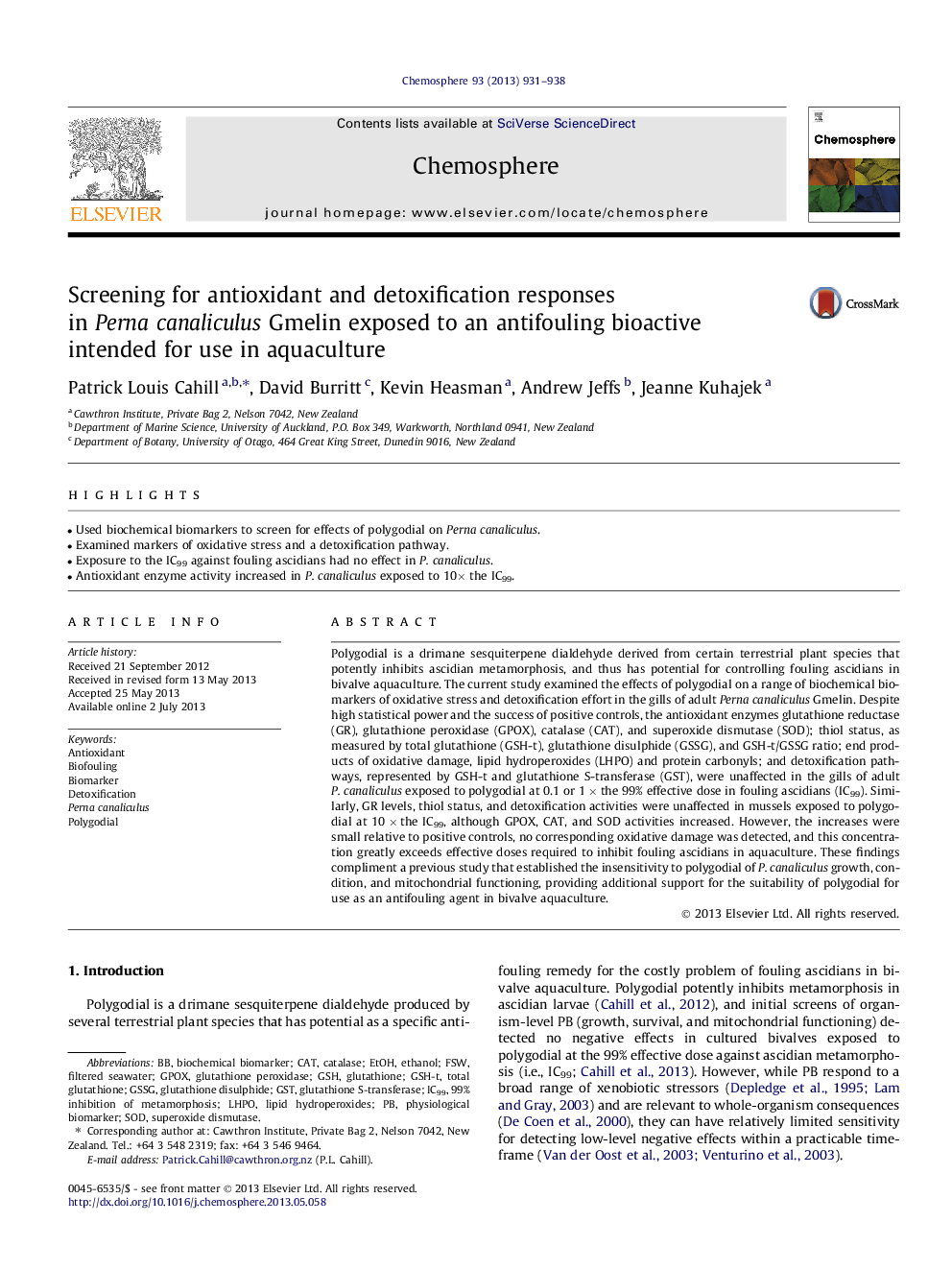| Article ID | Journal | Published Year | Pages | File Type |
|---|---|---|---|---|
| 6310265 | Chemosphere | 2013 | 8 Pages |
Abstract
Polygodial is a drimane sesquiterpene dialdehyde derived from certain terrestrial plant species that potently inhibits ascidian metamorphosis, and thus has potential for controlling fouling ascidians in bivalve aquaculture. The current study examined the effects of polygodial on a range of biochemical biomarkers of oxidative stress and detoxification effort in the gills of adult Perna canaliculus Gmelin. Despite high statistical power and the success of positive controls, the antioxidant enzymes glutathione reductase (GR), glutathione peroxidase (GPOX), catalase (CAT), and superoxide dismutase (SOD); thiol status, as measured by total glutathione (GSH-t), glutathione disulphide (GSSG), and GSH-t/GSSG ratio; end products of oxidative damage, lipid hydroperoxides (LHPO) and protein carbonyls; and detoxification pathways, represented by GSH-t and glutathione S-transferase (GST), were unaffected in the gills of adult P. canaliculus exposed to polygodial at 0.1 or 1Â ÃÂ the 99% effective dose in fouling ascidians (IC99). Similarly, GR levels, thiol status, and detoxification activities were unaffected in mussels exposed to polygodial at 10Â ÃÂ the IC99, although GPOX, CAT, and SOD activities increased. However, the increases were small relative to positive controls, no corresponding oxidative damage was detected, and this concentration greatly exceeds effective doses required to inhibit fouling ascidians in aquaculture. These findings compliment a previous study that established the insensitivity to polygodial of P. canaliculus growth, condition, and mitochondrial functioning, providing additional support for the suitability of polygodial for use as an antifouling agent in bivalve aquaculture.
Keywords
Related Topics
Life Sciences
Environmental Science
Environmental Chemistry
Authors
Patrick Louis Cahill, David Burritt, Kevin Heasman, Andrew Jeffs, Jeanne Kuhajek,
